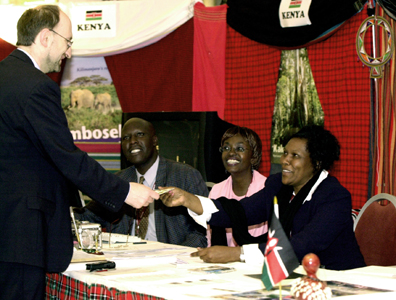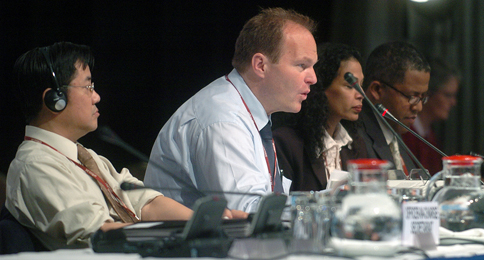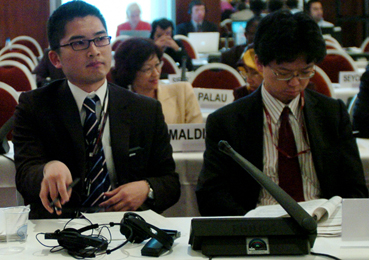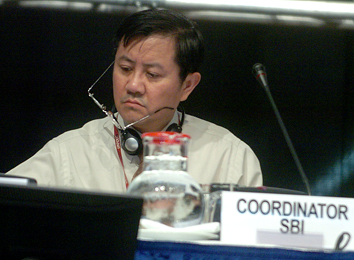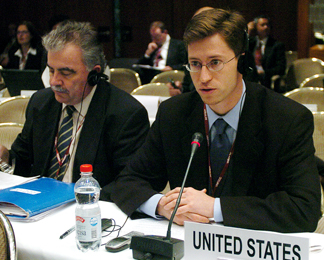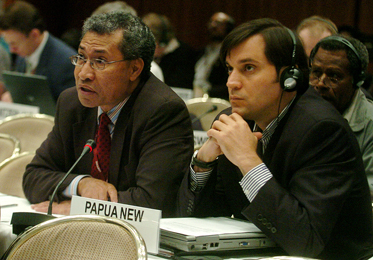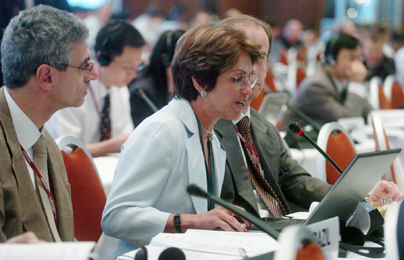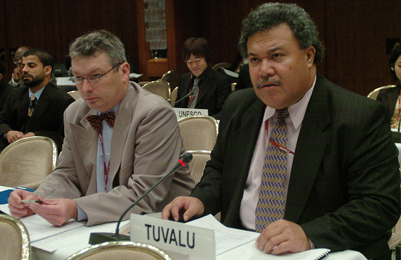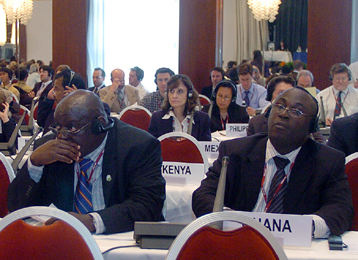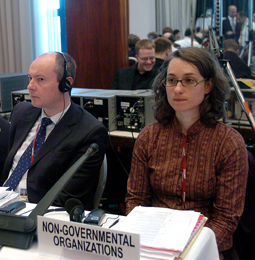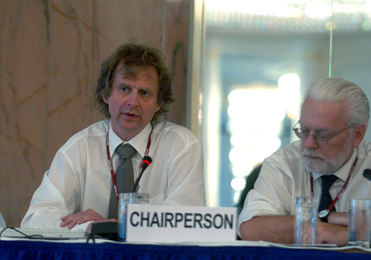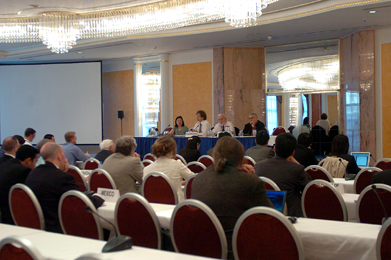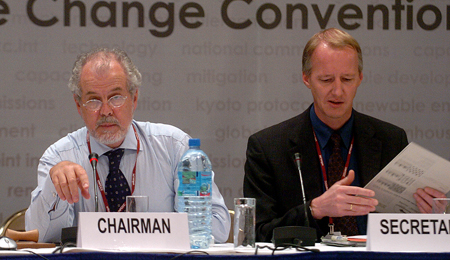| Above
photo L-R: SBSTA Chair Kishan Kumarsingh ( |
| |
|
| On
the Adoption of the Agenda, the Above photos L-R: Christo Artusio (US); Robert G. Aisi and Kevin Mark Conrad (Papua New Guinea) |
|
| Above photos L-R: Thelma Krug, IPCC, presented the IPCC 2006 Guidelines. Enele Sopoaga and Ian Fry (Tuvalu) , for AOSIS, stressed the complexity of deforestation. | |
| On
Technology Transfer, William Agyemang-Bonsu, Ghana, speaking for the G-77/China
(above left), underscored
adaptation technologies and South-South cooperation,
and suggested technology needs assessments be made
available to SBI. On the IPCC 2006 Guidelines for
National GHG inventories, International Hydropower Association urged careful consideration of the section
on flooded lands. Above photos L-R: Delegates from Ghana; Richard Taylor (International Hydropower Association) and Kirsten Macey (Climate Action Network Europe). |
| Contact Group: |
| Above
photos L-R: Contact Group on Reducing emissions from
deforestation co-chaired by Audun Rosland ( |
Informals: AWG |
| Above photos L-R: Michael Zammit Cutajar, AWG Chair, and Henning Wüster (UNFCCC); view of the informal session on AWG |
Daily web coverage:
15
May
-
16
May -
17
May
-
18
May
-
19
May
- 20 May
- 22 May
- 23 May
- 24 May
- 25 May
- 26 May
|
|
| |
||
| |
||
|
IISD RS "Linkages" home | Visit IISDnet | Send e-mail to ENB | |





